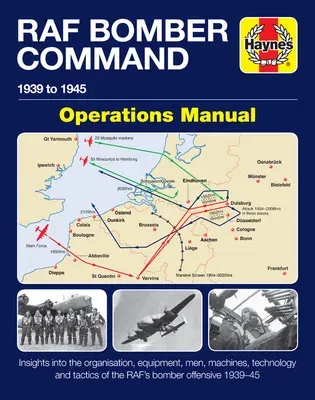Night after night for six years of war, RAF Bomber Command's squadrons
pounded away at the cities of Nazi Germany in a determined effort to
bring the Third Reich to its knees. Pitted against Bomber Harris's
aircrews and aircraft were some of the most effective and deadly
defenses the world had seen up until then.
For Bomber Command to launch a 'maximum effort' raid on the Ruhr by
night, or a low-level strike on a target in enemy occupied Europe by
day, it involved a huge amount of planning.
-
Who decided what to bomb?
-
Why, when and where were bomber airfields built?
-
How was the overall command structure organized, from the Air Council
down to individual squadron level?
-
Who were the commanders and who were the men that made up the rank and
file of the Command?
-
How did the RAF train its bomber crews?
-
What aircraft did they fly and what weapons did they use?
-
How was a raid planned and once it was launched what happened?
-
How was the effectiveness of a raid and bomber tactics analyzed
afterwards?
-
How did the RAF go about tracing the 'missing' (47,000 men 'failed to
return' from operations)?
-
How were damaged bombers repaired and made good again for operations?
Useful appendices include a Bomber Command War Diary listing key events
1939-1945, squadrons and their commanders, an a-to-z of bomber
airfields, and sample orders of battle from 1939, 1943 and 1945. Fully
illustrated with some 300 photographs, the RAF Bomber Command
Operations Manual gives a compelling insight into the workings of one
of the most powerful instruments of 20th century warfare.

